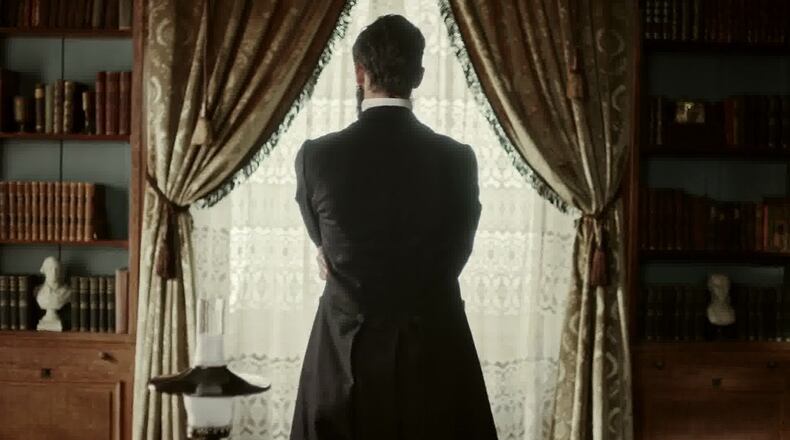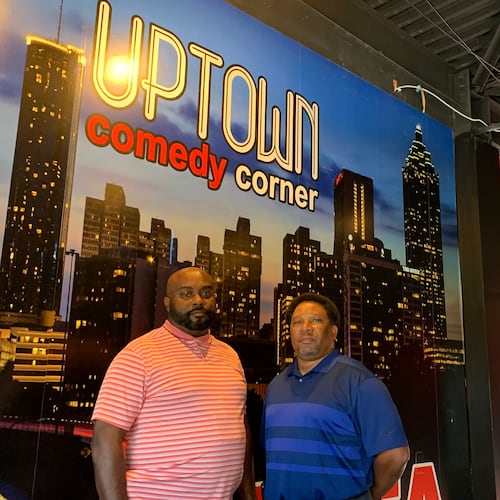Abraham Lincoln is arguably the most written about, scrutinized, picked apart and amplified figure in American history. There have been more than 15,000 books about Lincoln, so many that the Ford’s Theatre Center for Education and Leadership in Washington D.C. in 2012 literally built a tower of Lincoln-themed books 34 feet tall and 8 feet around.
So what more could be said about the former president that hasn’t already been said?
CNN was undaunted and decided to do a deep dive on a man who is quoted by politicians of all political stripes, from Nancy Pelosi to Donald Trump. Called “Lincoln: Divided We Stand,” the six-part series debuts at 10 p.m. Sunday, Feb. 14 on CNN.
The reality is most Americans have not read these books and may know Lincoln only in broad strokes: he was tall, he wore a black top hat, he was nicknamed “Honest Abe,” he freed enslaved people.
Executive producer Jon Hirsch, who previously worked with CNN on a series about the Pope, said while he and his fellow producer Nancy Glass were brainstorming ideas, she mentioned her husband Charles Lachman’s book about the tumultuous history of Lincoln’s family after he was assassinated, resulting in no direct living descendants today.
“There was a lean-in moment,” Hirsch said. “What else don’t we know about Lincoln? I started riffing. I’m a bit of an American history nerd.”
To Hirsch, “because of the way Lincoln died and the timing in which he died, he gets trapped in amber. We see him in this very simplistic way. Our history books in elementary and middle school show a sanitized version of Lincoln.”
For one, he said, many of Lincoln’s earlier viewpoints about Blacks would fit in the white supremacist playbook of today. He was not an abolitionist before the Civil War.
For sure, in the 1840s and 1850s, he was morally opposed to slavery and did not want it expanding into new territories. But he also wanted freed slaves to leave America for South America and Africa. He worried that millions of freed slaves would create undue competition in the labor market with white men.
But after he made the Emancipation Proclamation in 1863, with guidance from people like abolitionist Frederick Douglass, he eventually saw Blacks as human beings who deserved to fight for their own freedom. About 200,000 Blacks ultimately joined the Union military forces and helped them win the war.
“Lincoln started to see freedom didn’t mean anything without equality,” Hirsch said. “That is where I think Lincoln made his biggest leap: to push for Blacks to have the right to vote, hold office and own property.”
Hirsch, who has read at least 200 of the 15,000-plus Lincoln books, also wanted to make sure the series covers Lincoln’s personal travails, including his battles with depression and how devastating it was for him to lose his mother and sister at a young age. He even wrote poetry later in life that addressed his personal pain.
This trauma, Hirsch said, enhanced Lincoln’s ability to convey compassion to the families of fallen soldiers. “The way he communicated with those families and reached out to them was so remarkable,” he said.
The series also delves into his personal relationships of which there is some dispute among scholars. Those differences pop up in the series.
William Herndon, a former Lincoln law partner, wrote an early bio about him and shaped a narrative that was less than flattering about Lincoln’s wife Mary Todd. “Some people believe some of those original Lincoln stories that have shaped history books are embellished to embarrass Mary Todd Lincoln,” Hirsch said.
The series uses plenty of academic experts and a surprise appearance by fellow history nerd and talk-show host Conan O’Brien, who discusses Lincoln’s sense of humor.
“Lincoln was often vilified for making light of situations, but he used to say, ‘Without humor, I would surely die,’ “ Hirsch said. “He was very smart how he used humor to win over crowds. It helped him during the Lincoln-Douglas debates.”
The former president is also shown to be ever-evolving throughout his life.
“He had a remarkable capacity for change,” Hirsch said. “His willingness to listen to his critics and take what they were saying and learn from them, then apply them in politically savvy, strategic ways. He was compelling, humble, smart, funny and an absolute beast when it came to work ethic.”
At the same time, “he did what a lot of successful people do throughout history: he surrounded himself with people who had different experiences than he did, who could provide him with differing viewpoints.”
And since this was well before the age of video and audio, Lincoln’s writing took on greater importance. Fortunately, Lincoln was a brilliant writer. “His stuff is so masterfully constructed and the language he chose resonated in so many ways,” Hirsch said. “It’s not just the Gettysburg Address. It’s in the letters to widows, to fallen soldiers.”
The series shot re-enactments in and around Philadelphia, where Hirsch is based, and the area had plenty of backdrops and venues that convincingly evoked the 1800s. They hired a Broadway theater actor and former basketball player Gabriel Chytry to replicate Lincoln in height, stature and body language. The re-enactments are shot in broad, visually impressionistic ways. You never hear Lincoln’s voice and the producers seldom hone in on the actor’s face. Instead, they use actor Sterling K. Brown (“This Is Us”) as the narrator to quote Lincoln.
The CNN series provides different nuances to Lincoln’s character but still largely paints him in a positive light and his writing, Hirsch said, “provides fodder for both liberals and conservatives.”
If there was one constancy during his presidency, it was his deep desire to unify the nation. And the debates about equality and rights from that era still resonate in 2021, Hirsch said.
At the time of his death, his efforts to create a more fair and just country were far from finished. A century and a half later, Hirsch said, “We’re not there yet.”
Edna Medford, a history professor at Howard University with deep knowledge of Lincoln, told Hirsch that “when it comes to where we were and the journey we’ve gone through and where we are now, Lincoln would be most disappointed by how little has changed. It’s sad. It’s also real.”
WHERE TO WATCH
“Lincoln: Divided We Stand,” 10 p.m. Sundays, CNN, starting Feb. 14 and on the CNN app (though you will have to subscribe to an existing cable, satellite or streaming service that provides CNN to access it)
About the Author
Keep Reading
The Latest
Featured




